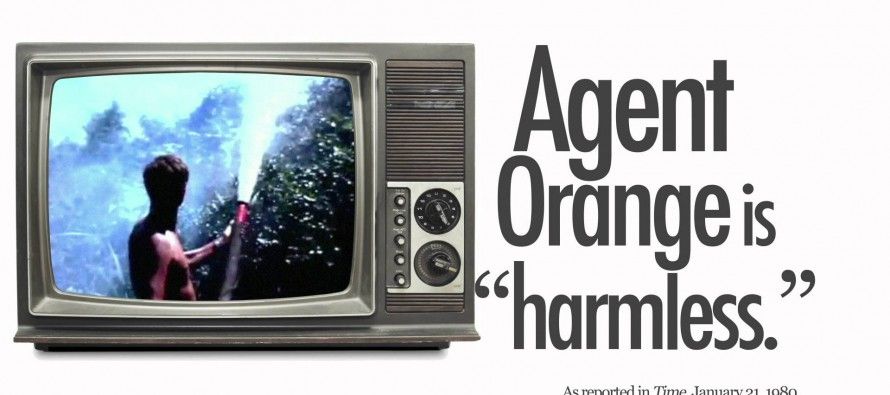37 Is the new 65: A field day for trial lawyers

Sept. 19, 2012
By Laer Pearce
The warm, caring hands of government are poised to protect us once again. Just like how California started protecting us in 1986 from chemicals it knew, in its wisdom, could cause cancer, birth defects and other reproductive harm, it may soon be protecting us from those nasty genetically engineered foods.
In 1986, it was Proposition 65, the Safe Drinking Water and Toxic Enforcement Act. I began to understand how sleazy that proposition was when I got a frantic call from a homebuilder client just a couple months after it passed.
“I’m going to have to put warning signs on all my new model homes or I’ll get sued,” he moaned. “What’s it going to do to sales if people have to walk by a cancer warning to go into one of my models?”
I told him not to worry because his competitors would have to post similar signs. But I was curious why a model home would need a Prop. 65 warning. After all, a brand new home is hardly a toxic sump of the sort the Yes on Prop. 65 ads had frightened Californians about.
“Well, for starters,” he said, “estrogen and testosterone are both on the Prop. 65 list of known carcinogens, so unless something other than men and women is going through my models, I’m going to have to post the signs.”
That was when I realized California had become what I’ve come to call “Crazifornia,” a state that has become a state of disaster. And it will be even more of a disaster if Proposition 37 passes this November.
Prop. 37
Prop. 37, we learn from its campaign website, “is a common-sense November ballot measure that will help consumers make informed choices about the food they eat.” That sounds reasonable. If my donut is laced with DDT or my orange was doused in Agent Orange, I want to know about it before I take a bite. Who could possibly have a problem with that?
Certainly not Jim Wheaton (pictured above), the Berkeley-educated lawyer who wrote Prop. 37. That would be the same Jim Wheaton who heads up the Environmental Law Foundation, a Bay Area litigation mill that has made $3 million in settlements and legal fees off Prop. 65 lawsuits. Oh, and he’s the same Jim Wheaton who wrote much of Prop. 65 in the first place.
Prop. 37 is a genetically engineered clone of Prop. 65. To create it, Wheaton simply grafted an anti-genetically engineered food gene onto Prop. 65’s DNA. If you’re worried about genetically engineered foods running rampant and destroying ecosystems, you should see what a genetically engineered proposition can do to California’s already reeling business sector.
More bureaucrats
Like Prop. 65, Prop. 37 would create a panel of experts, hand selected by Wheaton and his environmentalist and trial attorney collegues, that would decide what food ingredients and compounds at what concentrations constitute risk in California’s eyes. As a starting point, California’s regulations will be about twice as tough as ones that are already hurting farmers and food processors in Europe.
And as occurs with Prop. 65, each year attorneys from litigation mills and their environmentalist expert witnesses will petition this panel to have more compounds added to the list. Industry will push back, but most of the compounds will make it onto the list.
Then, similar to Prop. 65, state functionaries will look for violators who have missed the latest round of updates. They will monitor tens of thousands of food labels at grocery stores, retail outlets, farms and food processors, burning through tax dollars to produce the citations that are the raw materials for one of California’s biggest products: anti-business litigation.
The Prop. 65 litigation mills worked this formula so well with Prop. 65 that, between 1989 and 2011, companies have paid attorneys like Wheaton nearly half a billion dollars in legal fees and settlements to settle nearly 20,000 lawsuits. That’s apprently not enough, so the trial attorneys are hopeful they’ll open a big new market with Prop. 37.
At the top of this column, I alluded to DDT in my donuts and Agent Orange in my oranges. Surely the Yes on 37 campaign wouldn’t stoop so low as to dredge up dangerous chemicals that have long since been banned, right? Think again.
“You’ve heard the false corporate health claims before,” says a pro-37 ad. “DDT is ‘safe.’ Agent Orange is ‘harmless.’ Now they say genetically engineered food is safe.”
Of course, food manufacturers, retailers and farmers are lining up against Prop. 37, but as with the earlier Yes on 65 campaign, Yes on 37 is simply painting them as greedy corporations that don’t mind killing off customers, as long as they make an extra buck or two.
In 1986, 63 percent of California voters bought the lie. With polls showing 51 percent of likely voters planning to vote for Prop. 37 and just 16 percent planning to vote against it, there’s little evidence the voters have wised up to Wheaton’s game.
Laer Pearce is the author of “Crazifornia: Tales from the Tarnished State.” Portions of this column are excerpted from the book.
Related Articles
Public Utilities Commission crashes into Uber, Lyft
This week was supposed to be a Kumbaya moment for state legislators and ridesharing services. On Wednesday, Gov. Jerry Brown signed it into
Cell kill-switch bill moves ahead
California could soon become the second state in the nation to force so-called “kill switches” into cellphones. The technology causes
Why minorities are cold to green agenda: what Politico missed
Dec. 31, 2012 By Chris Reed Politico reporter Talia Buford had a weekend analysis piece about the environmental movement’s theories





